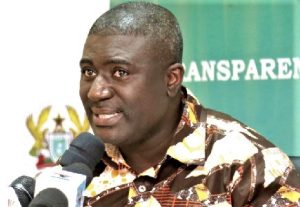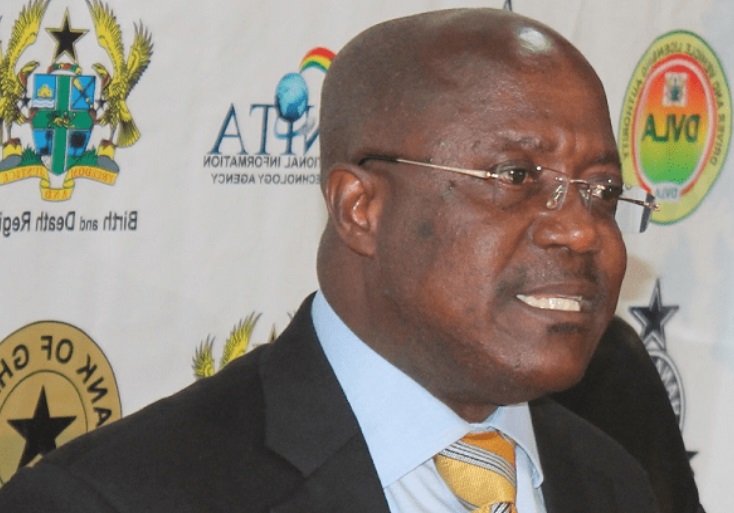The National Identification Authority (NIA) and the Electoral Commission (EC) have begun high-level discussions to create an integrated system for identifying registered voters and registering qualified individuals who turn 18 years ahead of the 2024 elections.
The two are currently drafting a memorandum of understanding (MoU), among other initiatives, to guide the effective operationalisation of their systems to interface for purposes of data validation and so on.
The Executive Secretary of the NIA, Professor Kenneth Agyemang Attafuah, confirmed this at a press soirée in Accra last Friday.
Context
A Deputy Chairman of the EC, Dr Eric Bossman Asare, at a multi-stakeholder forum organised by the National Peace Council (NPC) in Accra last Tuesday, also spoke about the collaboration to ensure that no eligible voter was disenfranchised.
He explained that the EC was projecting to add an additional two million names to the voters roll.

He added that at a meeting between the NIA and the EC, the authority made it clear that it was currently registering more than 200,000 Ghanaians every month, for which reason it was feasible for the EC to register the projected two million before the next election.
Dr Asare said as an interim measure for the continuous registration exercise ahead of the 2024 general election, Ghanaians who acquired their Ghana cards could walk to the EC and register, adding that the guarantor system would no longer be used.
Media engagement
The NIA organised the press engagement to forge closer collaboration with the media for them to become ardent promoters of the use of the Ghana Card.
Prof. Attafuah disclosed that plans were far advanced to harmonise the database of the two institutions, which would help the process of compiling new or limited voters registers from time to time.
Answering questions on the use of the Ghana Card as the sole document for registering voters, he said with the NIA registering 17.3 million of the projected 19 million eligible voters, “it will be a tragedy if we do not use the Ghana Card for Election 2024”.
“There is no reasonable basis, in my view, for that not to happen,” Prof. Attafuah said.
The NIA, he said, had shown the capacity to open additional registration points to augment the existing 292 registration centres available if necessary.
“I want to assure you and the entire nation that if Parliament grants the EC’s wish and gives it the go-ahead to use the Ghana Card, the NIA is poised to give cards to those whose cards are printed and are staying in backlog and to register and issue cards to those who have not yet registered for the Ghana Card,” Prof. Attafuah said.
“There is ample time; there is solid technical expertise and competence and there is the leadership and the will. It is a matter of those who have not got it getting it (the Ghana Card) and they will get it way ahead of the EC’s own timelines,” the Executive Secretary of the NIA added.
Other registrations
On Ghanaians living abroad, he said his outfit, through staff of the country’s missions abroad, would, from next year, start registering them.
He explained that Ghanaians in West Africa would pay the equivalent of $30 to register, while Ghanaians in the rest of Africa would pay a fee slightly lower than what Ghanaians living in European and American countries would pay.
“Ghanaians in Euro-American countries are required to pay the equivalent of $50 of the currency of the country in which they live. It is part of the revenue model that underpins this whole public/private partnership arrangement with Identify Management Systems Limited,” he said.
Refugees
Prof. Attafuah also announced that the NIA started the registration of all refugees in the country from last Saturday.
He indicated that the pilot registration was targeted at about 100 refugees and said the NIA was liaising with the Ghana Refugees Board (GRB) to ensure that the exercise would continue smoothly.
He stressed that only eligible refugees living in Ghana legally would get into the NIA’s database.
Robust system
Prof. Attafuah said the authority had a secure and robust system, adding: “Our data recovery system is not in Accra, and in the event of floods, our data are secure.”
“Additionally, the NIA had installed firewalls at both primary and secondary sites to secure its data and system,” he added.
He urged Ghanaians yet to register for the Ghana Card to do so or risk access to essential government services in the future.
“If for nothing at all, the SIM card registration has taught us the painful lesson of not having a Ghana Card,” Prof. Attafuah said.
Source: Graphic.com.gh




